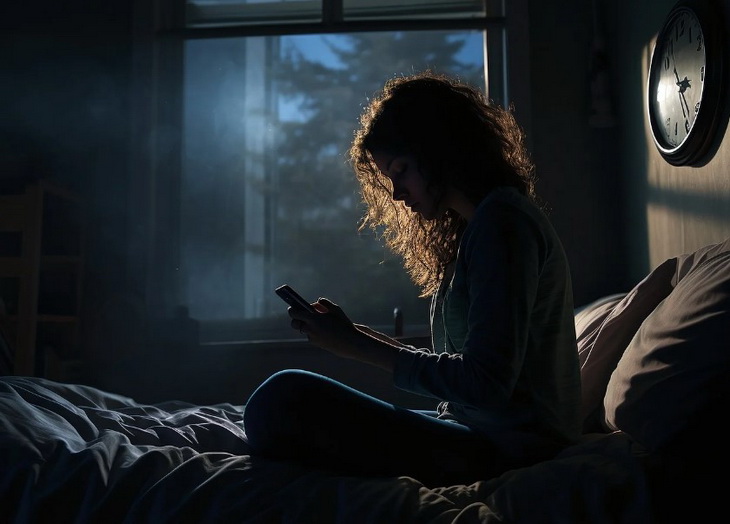What You Do Before Bed That Ruins Your Health: 90% of People Repeat This Mistake
Are you sure your evening ritual is helping you rest?
It is quite possible that a habit that seems harmless is slowly destroying your health.
We're not talking about a glass of wine or a late dinner - it's something 9 out of 10 people do without even thinking about it. And if you're reading this on your phone in bed, you're already at risk.
Scientists are sounding the alarm: blue light from smartphone, tablet and laptop screens is the main enemy of quality sleep. A study by Harvard Medical School has proven that just two hours of evening “surfing” reduces the production of melatonin, the hormone responsible for sleep, by 23%. This is equivalent to a cup of strong coffee before bed.
But the consequences are far more dangerous. A lack of melatonin disrupts circadian rhythms, forcing the body to live in a state of perpetual jet lag. The result? Morning fatigue, extra pounds, dull skin, and even an increased risk of depression.

Why does this happen? The retina of the eye contains special cells called melanopsins that react to blue light. They send a signal to the brain: "It's daytime, you need to stay awake!"
The body stops preparing for sleep: metabolism slows down, temperature does not decrease, recovery processes are not activated. Even if you fall asleep, the deep sleep phases will be reduced by 30-40%, which means that the muscles will not rest, the brain will not be “cleansed” of toxins, and the immune system will not receive resources to fight viruses.
But the problem is not only physiological. Social networks and news overload the brain with information, provoking anxiety. Instead of relaxing, you scroll through work chats, read negative posts or watch thrillers. Neuroscientists from the University of California have found that people who spend 30+ minutes on social networks before going to bed are 2 times more likely to suffer from insomnia and nightmares.
How to fix this
The first rule is to turn off all gadgets 1.5-2 hours before bed. But if this sounds like torture to you, start small:
Activate "night mode" on your devices. It reduces the amount of blue light, but does not eliminate it completely.
Buy glasses with yellow lenses. They block up to 90% of the blue spectrum. Research from the University of Houston confirms that using them 3 hours before bedtime increases melatonin levels by 58%.
Replace scrolling with "analog" activities. Reading a paper book, knitting, anti-stress coloring - anything that doesn't require a screen.
But there is a nuance: not all replacements are equally useful. For example, backlit e-books are the same gadgets. And reading in dim light is just as harmful to the eyes as a phone. The ideal option is a warm lamp light (2700 K) and calm activities: breathing exercises, light stretching, or planning the next day in a notebook.
What Happens When You Ditch Screens
In 3 days, you will notice that you fall asleep 15-20 minutes faster. In a week, you will feel like you wake up without an alarm clock. In a month, your skin will improve (melatonin protects against aging), your appetite will normalize (the hormone leptin, responsible for satiety, will stop “rebelling”), and your productivity will increase by 40%, as shown by research from Oxford University.
The main mistake that even those who have given up gadgets make is getting stuck in their thoughts. Lying in the dark, they continue to scroll through work tasks or conflicts in their heads. In this case, the “mental diary” technique will help: 15 minutes before going to bed, write down all your worries and plans on paper. This will “transfer” the load from the brain to the sheet and give a signal: “The job is done, you can rest.”
Your body is not a robot. It needs clear signals about when to work and when to rest. Stop messing with its settings with blue light – give natural rhythms a chance. After all, healthy sleep is not a luxury, but a basic need. And it’s worth putting your phone down for.
